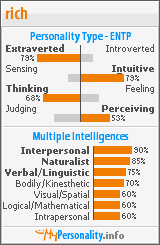I am in a weird place. Those who read this will know I am often in a weird place. It’s a place where my high intellect and massive amounts of emotion mix and I come up with odd questions and situations, and even more odd solutions.
Most of this is James’ fault, all of his talk about cultural relevancies, new Church movements and what not.
Let’s hypothetically say I am going to plant a church.
If what I deem to be a culturally relevant Church, (meaning group of believers, not a building) does not resemble what we have long practiced as a congregation in the CoC? More than just not in a Church building. More than deviating from our template of opening song, welcome, 2 songs, prayer and scripture, 2 songs, communion, song, sermon, stand as we sing, announcements. What about what the New Testament defines as Church leadership? What if I couldn’t find Elders or Deacons to work with?
The Biblical definition of Church leadership is quite defined. A man who has children who believe, married to one wife, and has a good reputation. One thing that is usually associated with Elders and Deacons are their age. Do you think that the principals that made a good father and an outstanding member of the community made a good Church leader? That they were a good husband, or they just had a wife? Or was it the fact that they had children? Or that there were no people that had bad things to say about them?
What I’m getting at is, I do not think that having children that are believers make a good leader. I do not think that having a wife that hasn’t divorced you make you a good leader. I do not think having a good reputation makes you a good leader. I do not think being old makes you a good leader. I do believe that having children who follow your beliefs show that you are a good mentor, and teacher. That you are married to one wife shows that you are devoted, and care about others. To have a good public reputation shows that you are honest and have integrity. And for the most part more experience makes you wiser. (Or is it more wise?)
There are plenty of people I know who do not meet the criteria found in books like Timothy, yet posses all of the qualities that would produce the things found there if their situation were different. Our society has changed in many different ways since the New Testament was written. It has changed drastically since the Restoration movement. There is no real push to be married. Much less pressure for reproducing. In our society there is much less public interaction to build public trust. People are living longer, and have a vast advantage in education over past generations, meaning they are wiser younger and can learn to mentor without having children.
I think that these characteristics are what are important. To lead someone else to salvation you should be a good mentor, you should be devoted to the well being of others, you should have integrity, and you should be wise about life in general. I think that our culture has changed to the point were the definitions of Church leaders are outdated.
Do you think that I have the authority to make calls like this? What do you think?
Subscribe to:
Post Comments (Atom)



4 comments:
There are some who believe that official "offices" of elder and deacon are made up by religious people, and not how it was intended by Jesus. I believe it is important for us to have leaders among us. While it is important to have standards for who those leaders are, the way we "elect" them, and such doesn't seem to make much sense to me. If you are a leader, you will lead and people will follow, even if you have unpopular opinions. Those who are meant to be elders and deacons will serve as such regardless of whether or not they are "official". Having kids or being married doesn't make you wise, though those experiences have some amount of wisdom that come with them. I've seen too many churches hamstrung by elders or deacons that shouldn't be. My 2 cents.
Dude, how is it that I take the rap for this?
Whatever. One thing I think has been screwed up is that we see elders like a board of directors that are supposed to run the business-er-church, and deacons are junior elders. That doesn't square with scripture.
Acts shows us that the elders are the ones who care for the souls of the church and the "ministry of the word and prayer" while the deacons take care of the physical needs of the church. The two are not the same, nor does one graduate into another. If someone is gifted as a spiritual mentor, then they should focus in that area (and maybe become an elder at a "young" age - though they must be mature). If someone is a gifted administrator, then they should take pride in their work as a deacon (a.k.a. servant) no matter how old they get.
I like both of those comments. Leaders will rise and lead. I remember when Federal Way cowed one elder to resign so the other would have no footing as a singular Elder. Then we ran monthly men's business meetings until we elected new Elders. It was such a hostel environment.
The scriptural differences of the two are also often forgotten. Stephen was involved in handing out the bread while Paul was preaching to the flock.
Wikipedia has a great checklist of "qualifications" for elders http://en.wikipedia.org/wiki/New_Testament_Church
I only bring it up because as I think and plan on planting a church I want to make sure I'm being diligent in providing the needs of God's flock. The next step will be reviewing my own skills, and gifts to find my place in the Church. I am sure it will be as the choreographer.
Yes you have this authority. We call it Evangelistic Oversight which has been practiced by the Mutual Ministry and ICOC parts of the Restoration movement. Church plants call it apostolic authority.
However, Paul and Barnabas appointed elders at Lystra, Derbe, and Iconium which were very young churches (1-1/2 years young). Email me if you would like and I will send you some info on this. rclark@agapecoc.com
Post a Comment